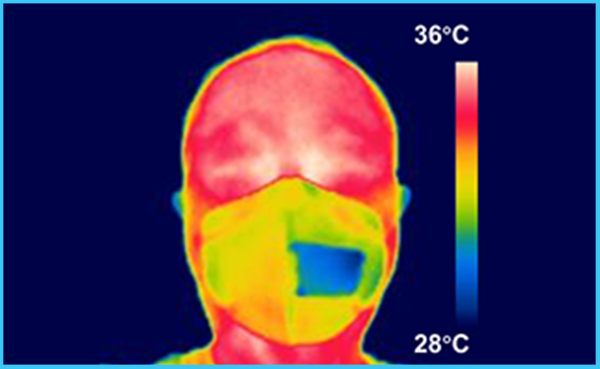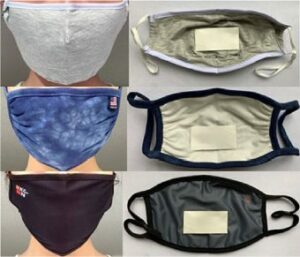
For years, automotive companies have developed intelligent sensors to monitor a vehicle’s health, including engine oil pressure, tire pressure, and air-fuel mixture. Together, these sensors can provide an early warning system for a driver to identify a potential problem before it may need to be repaired.
Now, in a similar vein biologically, Zheng Yan, an assistant professor in the MU College of Engineering at the University of Missouri, has recently published two studies demonstrating different ways to improve wearable bioelectronic devices and materials to provide better real-time monitoring of a person’s health, including vital signs.
Developing a ‘smart’ face mask
 The onset of the COVID-19 pandemic has brought the idea of mask-wearing to the forefront of many people’s minds. In response, one focus of Yan’s lab has been to develop breathable soft bioelectronics. He said it was natural for him and his team to come up with the idea of integrating bioelectronics in a breathable face mask, which can monitor someone’s physiological status based on the nature of the cough.
The onset of the COVID-19 pandemic has brought the idea of mask-wearing to the forefront of many people’s minds. In response, one focus of Yan’s lab has been to develop breathable soft bioelectronics. He said it was natural for him and his team to come up with the idea of integrating bioelectronics in a breathable face mask, which can monitor someone’s physiological status based on the nature of the cough.
“Different respiratory problems lead to different cough frequencies and degrees,” Yan said. “Taking chronic obstructive pulmonary disease (COPD) as an example, the frequency of cough in the early morning is higher than in the daytime and night. Our smart face mask can effectively monitor cough frequencies, which may assist physicians with knowing disease development and providing timely, customized interventions.”
The findings were recently published in ACS Nano.
Laser-assisted fabrication of wearable electronics
In a recent study in Science Advances, Yan and his team studied the potential of using a metallic conductor called MoO2. Yan said one potential application of this approach could be to help monitor a person’s breathing.
“Monitoring a person’s breathing rhythm will be useful for diagnosing some diseases, such as sleep apnea,” Yan said. “Also, we could concurrently monitor the heart rate, heart rate variation, and electroencephalograms to provide more comprehensive information for studying sleep apnea.”
For more information and to read the full news release, please see Show Me Mizzou.